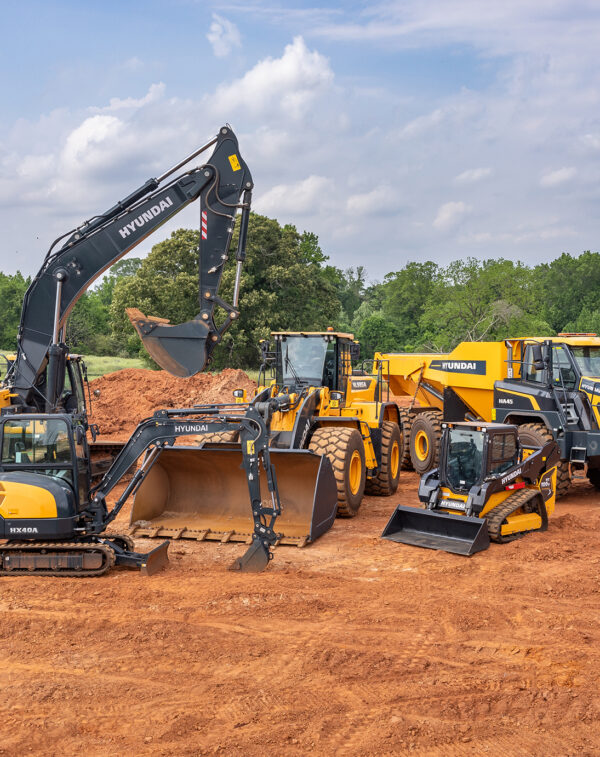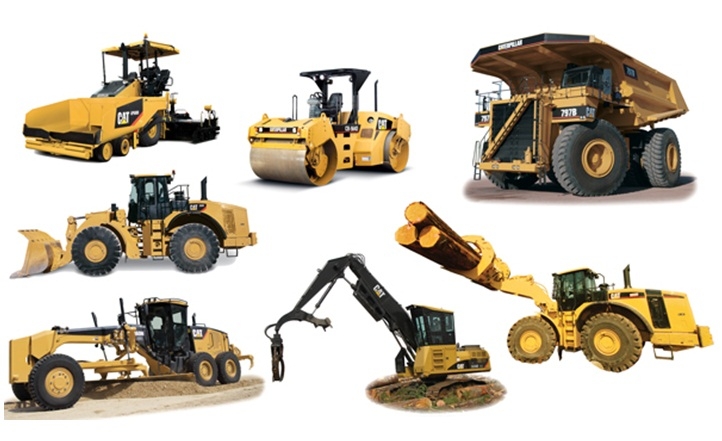Discovering the Financial Benefits of Leasing Building Equipment Compared to Possessing It Long-Term
The choice in between possessing and renting construction devices is critical for financial monitoring in the industry. Renting deals immediate expense financial savings and functional flexibility, permitting business to allocate resources much more efficiently. In contrast, possession includes considerable lasting financial commitments, including maintenance and depreciation. As professionals evaluate these options, the influence on cash money circulation, task timelines, and innovation accessibility becomes increasingly considerable. Understanding these subtleties is necessary, particularly when considering just how they line up with certain job needs and monetary approaches. What elements should be focused on to make sure optimal decision-making in this complicated landscape?

Cost Contrast: Renting Out Vs. Possessing
When examining the financial ramifications of renting versus owning building equipment, a thorough cost contrast is important for making informed decisions. The option between renting and possessing can dramatically influence a firm's profits, and comprehending the associated prices is crucial.
Renting building and construction devices commonly involves reduced ahead of time prices, allowing services to allot resources to other functional requirements. Rental prices can accumulate over time, potentially surpassing the expense of ownership if equipment is required for a prolonged duration.
On the other hand, possessing building and construction tools needs a considerable first financial investment, in addition to ongoing costs such as financing, insurance, and devaluation. While possession can result in long-lasting cost savings, it also ties up capital and may not offer the very same degree of versatility as renting. Furthermore, owning equipment necessitates a dedication to its application, which might not always align with task needs.
Inevitably, the decision to lease or own should be based upon a thorough analysis of particular task needs, economic capacity, and long-lasting strategic goals.

Upkeep Expenditures and Duties
The choice in between renting out and possessing construction tools not just involves financial considerations however also encompasses recurring upkeep costs and responsibilities. Possessing devices needs a significant dedication to its upkeep, which includes regular examinations, fixings, and possible upgrades. These obligations can quickly gather, leading to unanticipated expenses that can strain a budget plan.
On the other hand, when renting tools, upkeep is typically the duty of the rental firm. This plan allows service providers to prevent the financial problem related to deterioration, as well as the logistical challenges of organizing repair work. Rental agreements commonly include arrangements for maintenance, indicating that contractors can concentrate on finishing projects as opposed to bothering with equipment condition.
In addition, the diverse series of tools offered for rental fee allows companies to select the current models with sophisticated technology, which can boost efficiency and efficiency - scissor lift rental in Tuscaloosa Al. By selecting services, businesses can prevent the lasting responsibility of equipment depreciation and the connected upkeep frustrations. Ultimately, assessing maintenance costs and obligations is critical for making an informed decision regarding whether to lease or possess construction equipment, dramatically influencing total project costs and operational efficiency

Devaluation Effect On Possession

A significant element to think about in the choice to have building and construction tools is the effect of devaluation on total possession prices. Devaluation stands for the decrease in worth of the tools with time, affected by variables such as use, deterioration, and improvements in innovation. As devices ages, its market worth reduces, which can substantially influence the proprietor's monetary setting when it comes time to offer or trade the devices.
For building business, this depreciation can convert to considerable losses if the equipment is not made use of to its maximum capacity or if it becomes out-of-date. Proprietors should account for devaluation in their financial forecasts, which can lead to greater overall prices contrasted to leasing. Additionally, the tax obligation effects of depreciation can be intricate; while it may give some tax advantages, these are typically countered by the reality of decreased resale worth.
Ultimately, the worry of depreciation emphasizes the importance of understanding the long-lasting economic dedication associated with owning building and construction devices. Companies should thoroughly review how commonly they will make use of the equipment and the potential monetary impact of devaluation to make an enlightened choice concerning ownership versus renting.
Economic Adaptability of Leasing
Leasing building and construction equipment supplies considerable economic flexibility, allowing firms to assign resources a lot more successfully. This adaptability is particularly important in a sector identified by fluctuating project demands and varying workloads. By choosing to rent, companies can prevent the considerable funding investment needed for buying devices, protecting cash money circulation for various other functional demands.
In addition, renting out tools makes it possible for firms to customize their devices options to particular job demands without the long-term commitment connected with ownership. This implies that companies can easily scale their equipment supply up or down based upon anticipated and current task demands. As a result, this flexibility minimizes the threat of over-investment in equipment that may end up important source being underutilized or obsolete over time.
Another economic benefit of renting is the potential for tax obligation advantages. Rental repayments are frequently considered general expenses, enabling instant tax obligation reductions, unlike depreciation on owned and operated devices, which is topped a number of years. scissor lift rental in Tuscaloosa Al. This immediate expenditure recognition can further boost a business's cash money setting
Long-Term Project Factors To Consider
When examining the lasting demands of a construction company, the choice in between owning and renting equipment ends up being extra complex. For projects with extended timelines, purchasing devices may seem beneficial due to the capacity for lower general expenses.
The building industry is progressing rapidly, with new tools offering improved efficiency and safety and security attributes. This versatility is especially beneficial for organizations that manage diverse tasks needing various kinds of devices.
Moreover, economic stability plays a vital role. Having equipment usually involves significant funding investment and devaluation concerns, while leasing permits even more predictable budgeting and capital. Eventually, the selection in between renting and owning should be lined up with the strategic goals of the construction service, taking into consideration both anticipated and present task demands.
Final Thought
In conclusion, their explanation renting construction Get the facts equipment provides substantial financial advantages over long-term possession. Inevitably, the choice to rent out instead than own aligns with the dynamic nature of building jobs, allowing for adaptability and accessibility to the most recent tools without the economic problems connected with ownership.
As equipment ages, its market worth decreases, which can substantially impact the owner's financial placement when it comes time to trade the equipment or sell.
Renting out building and construction devices provides significant economic adaptability, enabling business to allocate resources a lot more effectively.Additionally, renting out devices enables firms to tailor their equipment selections to particular project demands without the long-term dedication linked with ownership.In verdict, renting building and construction devices offers significant financial benefits over long-lasting possession. Eventually, the choice to lease instead than very own aligns with the vibrant nature of building and construction tasks, allowing for adaptability and accessibility to the newest equipment without the economic problems associated with ownership.
Comments on “Mini Excavator Rental in Tuscaloosa AL: Compact and Powerful Equipment for Little Jobs”